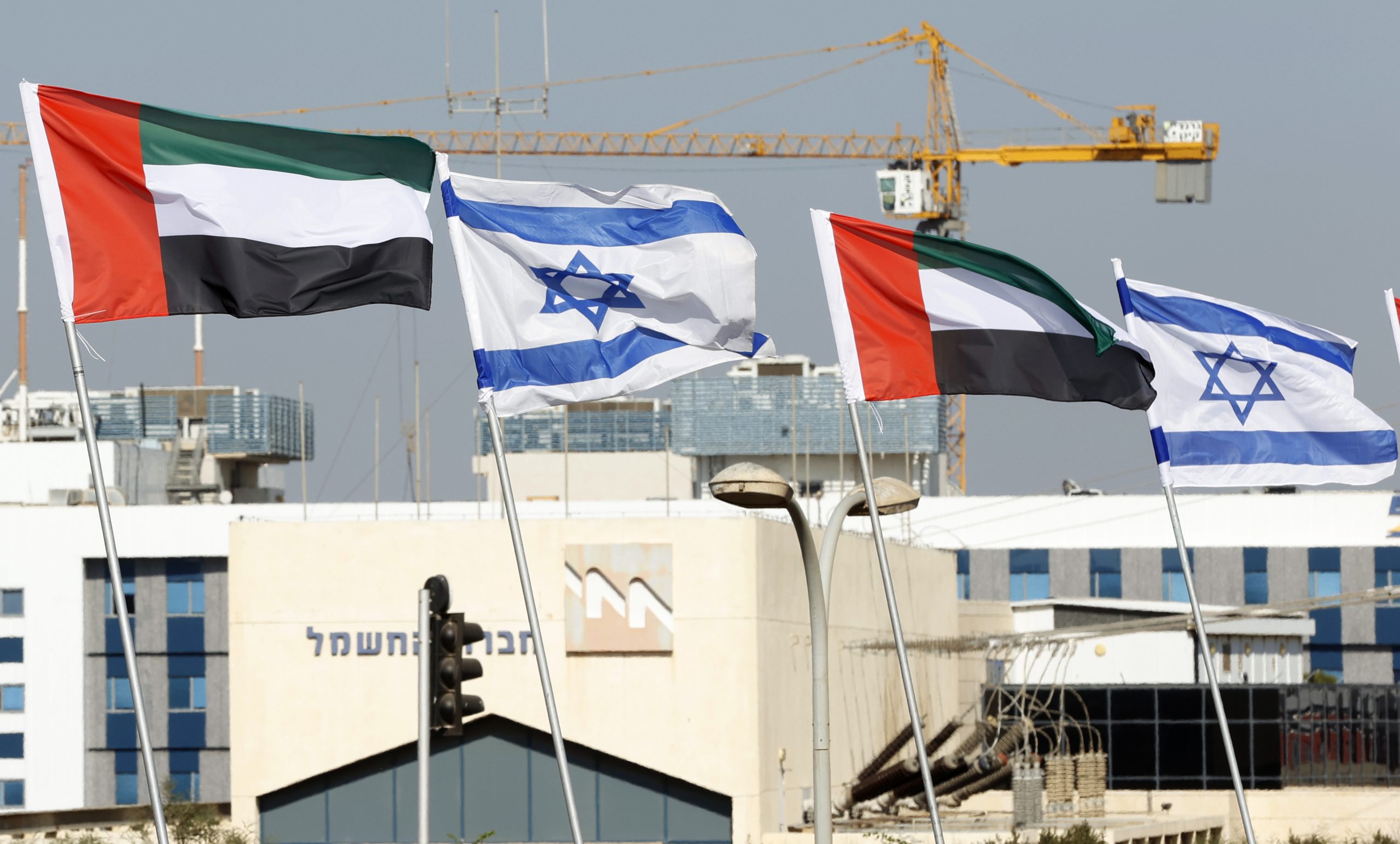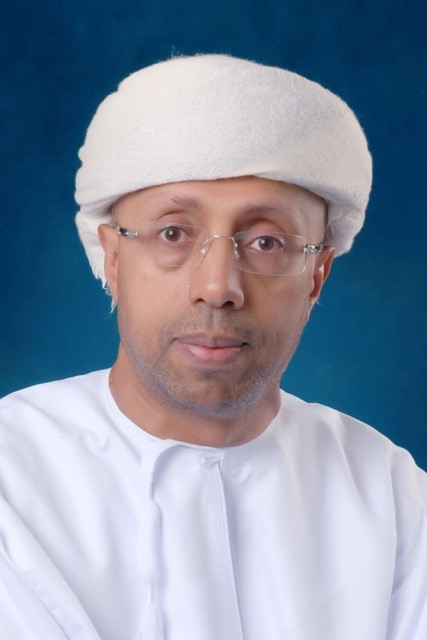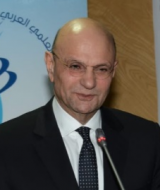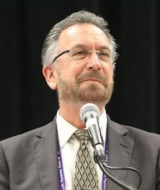
- 08 Sep 2020
What Next for Israel and the Gulf States?
Abstract
With the exception of Kuwait, the Gulf states’ interest in cultivating ties with Israeli and Jewish figures in the United States is an open secret. With the UAE’s recent normalisation of relations with Israel under the Abraham Accord, the commonly held notion that territorial concessions to the Palestinians are a prerequisite for formalising diplomatic relations with Arab states has been called into question. Will other Gulf states follow suit? How will Arab public opinion shape their governments’ reaction? What are the solutions left for the Palestinians? The Middle East Institute will be hosting a panel of speakers in a discussion on these questions. The session will be moderated by MEI Research Fellow Clemens Chay.
Join us on Zoom on 8 September at 7.30pm (SGT). All are welcome to participate. An e-invite will be sent to you closer to the event date.
This event is free, however, registration is compulsory.
Image caption: Israeli and United Arab Emirates flags line a road in the Israeli coastal city of Netanya, on August 16, 2020. Jack Guez / AFP
Listen to the full session here:
Watch the full video here:
Read the Summary of Event Proceedings:
By Fauzan A Roslee
Research Associate, Middle East Institute, National University of Singapore
The recent peace agreement between the United Arab Emirates (UAE) and Israel was considered an unprecedented move by many in the Arab world. While the United States saw it as an accomplishment towards stability in the Middle East, Palestine and its allies viewed the agreement as a betrayal to the Palestinian cause. Moderator Dr Clemens Chay commenced the session by inviting each of the speakers to share their thoughts on the UAE–Israel peace agreement.
Mr Sigurd Neubauer kicked off the discussion by claiming that there has been a popular narrative in the Middle East about the Israeli–Gulf cooperation against Iran. The Gulf states have increasingly viewed Iran, and not Israel, as an immediate threat to stability in the region. This narrative is also perpetuated by the Trump administration’s high regard for Israel and its adverse policies towards Iran.
However, Mr Neubauer pointed out that the normalisation of ties between UAE and Israel should not come as a complete surprise as Gulf states have been cultivating diplomatic relationships with Israel in recent years. For instance, Israeli Prime Minister Benjamin Netanyahu had visited Oman in 2018 together with the Mossad intelligence chief at the invitation of the late Sultan Qaboos. Although some had criticised the Omani government for the visit as a show of support for the Israeli state, analysts saw it as a pre-emptive move to deter Oman’s neighbours from forcing it into a political struggle in the region.
Nevertheless, in light of the UAE–Israel peace agreement, Mr Neubauer said Oman, along with other Gulf states, may not follow suit as it sees no immediate need for that. At the same time, if other Arab states wish to normalise relations with Israel, they would want to pursue it on their own terms, and not because they are merely following UAE’s lead.
Dr Shafeeq Ghabra, on the other hand, was quite critical of the UAE–Israel agreement and saw it as neither a positive nor a negative development for peace in the Middle East. However, he stressed that the agreement did take the region by surprise, especially among the Arab public. Dr Ghabra maintained that the Middle East is still rife with conflicts, and that normalisation of ties with Israel is just going to worsen the unresolved issues in the region.
He said the agreement could be short-lived, or perhaps dwindle, or even not make much headway towards peace and stability in the region. This is also supported by the fact that there is not much support on the ground for the UAE–Israel agreement, mainly due to the unfair treatment of Palestinians by the Israeli state. At the same time, the Palestinian authorities were not privy to the details of the agreement before it was announced. The governments of Kuwait and Jordan felt that the agreement should have been consulted with the Palestinian state in order to ensure that their rights are accorded. The agreement could also be seen as detrimental and destabilising to the region as nothing is being done about the Israeli settlements which had taken over lands from their rightful owners, and that the discriminatory policies of the Israeli government is akin to the apartheid state.
Dr Abdullah Baabood remarked that, at this juncture, normalising relations with Israel is not a top priority for Arab states as they are facing far more pressing issues such as battling the Covid-19 pandemic. On top of that, the Arab public do not generally support the UAE–Israel agreement not on the account of them being Arabs or Muslims, but more importantly because of the mistreatment of Palestinians by the Israeli state. The Palestinian issue has shaped the psyche of the Middle East populace, and that any peace agreement with Israel should advance the Palestinian cause. Dr Baabood also indicated that although the peace process between Palestine and Israel is an extremely complex situation, there are some misconceptions that needed to be straightened out. For instance, it is wrong to proclaim that all Arabs or Muslims hate the Jews or Israelis.
He suggested exploring a paradigm shift in addressing the Palestine–Israel conflict beyond religious and racial lines. While the UAE–Israel peace agreement might just be a step towards peace between Palestine and Israel, the merits of the agreement should be reassessed: is it a tactical game for either the UAE or Israel? Or is it a marriage of convenience between the two states in order for Israel to have a breakthrough in developing relationships with other Arab states? Although the agreement could be seen as UAE’s attempt at taking on a prominent role in the region, the Arab states are still waiting for the consequence of the peace agreement, which is weighed in by public reaction and other states’ insistence on sticking to the Arab Peace Initiative.
Rabbi David Rosen contended that there is indeed strong support from Palestinians for the peace agreement. This can be attested by a vast number of Palestinians who are fed up with the current Palestinian authorities (ie, the leadership of Fatah and Hamas). Many Palestinians were also said to believe that the second intifada had failed them as they are nowhere near a peace plan. Rabbi Rosen asserted that the two-state solution is a viable plan towards peace and stability in the region, and that some Palestinians welcomed the UAE–Israel agreement and viewed it optimistically.
He also refuted Dr Ghabra’s claims of Israel’s discriminatory policies. He emphasised that the Israeli state had granted citizenship to Arabs and Muslims, and that it does not take action against people for their ethnicity or creed — and hence it is not an apartheid state — but rather on the basis of state and national security.
He added that it is also important for Arab states and Muslim communities to manage the anti-Semitic sentiments that can be quite apparent among the Arab public. For instance, Rabbi Rosen pointed out the fact that anti-Semitic literature is still easily available at book fairs across the Middle East, and that not much concerted effort has been done to address it. However, the interfaith initiatives that have been introduced by some Gulf states, like Saudi Arabia, is a great start to fostering a long-lasting relationship among peoples of different faiths, although they can be seen as a political strategy to cultivate a state’s image and soft power.
During the question and answer segment, questions on how the US and Saudi Arabia feature in the UAE–Israel agreement and its sustainability were raised. Mr Neubauer was of the opinion that the Trump administration certainly saw the agreement as a win for US foreign policy as it had a hand in brokering it between the two countries. At the same time, while Saudi Arabia had opened its airspace to Israel, the kingdom is far from normalising its ties with Israel as it might suffer from public backlash, among other factors.
Rabbi Rosen believed that the UAE–Israel agreement is sustainable as the parties involved want it to be. He also saw potential for the agreement to be expanded into other areas that are of mutual benefit for both countries.
Dr Baabood was also optimistic in his outlook on the agreement, but maintained that the peace process between Palestine and Israel should not be overlooked. He reminded everyone that if the UAE wishes to advance the peace process, it can only happen through dialogue with the Palestinian state, and not just with Israel. Dr Ghabra however was quite adamant that the Israeli state policies which persecute and discriminate against Palestinians remains the crux of the issue that should be resolved in order for the peace process to make real progress.
About the Speakers

Visiting Professor
School of International Liberal Studies
Waseda University, Japan
Dr Shafeeq Ghabra
Professor of Political Science
Kuwait University
Mr Sigurd Neubauer
Gulf analyst & commentator
Rabbi David Rosen
International Director of Interreligious Affairs
American Jewish Committee
Dr Abdullah Baabood is a visiting professor at the School of International and Liberal Studies at Waseda University, Japan. He was previously a visiting research professor at the Middle East Institute, National University of Singapore. He also held the position of director at both the Gulf Research Centre, University of Cambridge, and at the Gulf Studies Center, Qatar University. His research interests are primarily focused on the GCC states’ economic, social and political development.

Dr Shafeeq Ghabra is a Professor of Political Science at Kuwait University and the founding president of Jusoor Arabiya which focuses on youth leadership programmes and strategic planning. He is the former founding president of the American University of Kuwait (2003–2006). He also directed the Kuwait Information Office in Washington, DC (1998–2002) and the Center of Strategic Studies at Kuwait University (2002–2003). Dr Ghabra earned his BA from Georgetown University in 1975, his MA from Purdue University in 1983, and his PhD in political science from the University of Texas at Austin in 1987. He is the author of five books and numerous studies.

Mr Sigurd Neubauer is the author of The Gulf Region and Israel: Old Struggles, New Alliances (Kodesh Press, 2020), and is the co-editor of The Gulf Crisis: Reshaping Alliances in the Middle East (Gulf International Forum, 2018). His decade-long research experience focusing on US–Gulf relations, including Saudi Arabia, Qatar, Oman, United Arab Emirates, intra–Gulf dynamics and Gulf–Israeli relations, span from the US defense industry to Washington think tanks and Arab media.
Mr Neubauer has also authored dozens of scholarly articles and hundreds of commentary pieces, including for The New York Times, Foreign Affairs, POLITICO, CNN, Fox News, Arab News, Haaretz, The Jerusalem Post and The Forward, among others. He is also frequently quoted by the international media, including by Financial Times, The New York Times, The Times of London, Bloomberg News, Associated Press, AFP and others. From 2009–2018, Mr Neubauer was a senior analyst for SOS International, a US defense consultancy.

Rabbi David Rosen is the international director of Interreligious Affairs of the American Jewish Committee. He is concurrently a member of the Chief Rabbinate of Israel’s Committee for Interreligious Dialogue and serves on the Council of the Religious Institutions of the Holy Land (www.crihl.org). He holds positions in various organisations, including as the international president of the World Conference on Religion and Peace (www.religionsforpeace.org), honorary president of the International Council of Christians and Jews (www.iccj.org), and as the only Jewish member of the Board of Directors of the King Abdullah International Center for Interreligious and Intercultural Dialogue (www.kaiciid.org), established in 2012 by the King of Saudi Arabia together with the governments of Austria and Spain with the support of the Holy See.
Previously he chaired the International Jewish Committee for Interreligious Consultations (IJCIC, which represents world Jewry to other world religious bodies.)
In 2005, Pope Benedict XVI bestowed upon Rabbi Rosen a Papal Knighthood in recognition of his contribution to promoting Catholic–Jewish reconciliation and in 2010, he was awarded a CBE (Commander of the British Empire) by Queen Elizabeth II.




